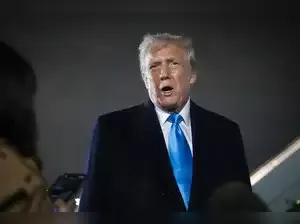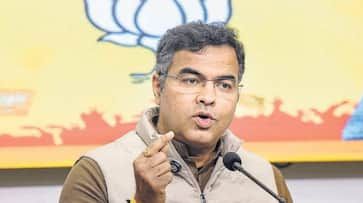President Donald Trump signed an executive order to cut U.S. financial assistance to South Africa, the White House said on Friday, citing disapproval of its land policy and of its genocide case at the International Court of Justice against Washington's ally Israel.
The United States allocated nearly $440 million in assistance to South Africa in 2023, the most recent U.S. government data shows.
The White House said Washington will also formulate a plan to resettle white South African farmers and their families as refugees.
It said U.S. officials will take steps to prioritize humanitarian relief, including admission and resettlement through the United States Refugee Admissions Program for Afrikaners in South Africa, who are mostly white descendants of early Dutch and French settlers.
Trump has said, without citing evidence, that "South Africa is confiscating land" and that "certain classes of people" were treated "very badly." South African-born billionaire Elon Musk, who is close to Trump, has said that white South Africans have been the victims of "racist ownership laws."
South African President Cyril Ramaphosa - who signed into law a bill last month aimed at making it easier for the state to expropriate land in the public interest - has defended the policy. He has said the government had not confiscated any land and the policy was aimed at evening out racial disparities in land ownership in the Black-majority nation. Ramaphosa said South Africa "will not be bullied."
Washington has also complained about the case brought by South Africa at the International Court of Justice, where it accused Israel of genocide over Israel's military assault on Gaza that has killed tens of thousands and caused a humanitarian crisis.
Israel denies the allegations, saying it acted in self-defense following a deadly Oct. 7, 2023, attack by Palestinian Hamas militants.
The White House cited that case as an example of South Africa taking positions against Washington and its allies.
The executive order signed by Trump will address human rights issues in South Africa, the White House said. Trump had threatened to cut off funding for the nation soon after taking office.
The question of land ownership is highly politically charged in South Africa, due to the legacy of the colonial and apartheid eras when Black people were dispossessed of their lands and denied property rights.
White landowners still possess three-quarters of South Africa's freehold farmland. This contrasts with 4% owned by Black people, who make up 80% of the population compared with about 8% for whites, according to the latest 2017 land audit.
Delhi Elections Live
Delhi Assembly Elections Live Updates
Top battlegrounds: What's happening where
D-day for Delhi: Top newsmaking moments
The White House said Washington will also formulate a plan to resettle white South African farmers and their families as refugees.
It said U.S. officials will take steps to prioritize humanitarian relief, including admission and resettlement through the United States Refugee Admissions Program for Afrikaners in South Africa, who are mostly white descendants of early Dutch and French settlers.
Trump has said, without citing evidence, that "South Africa is confiscating land" and that "certain classes of people" were treated "very badly." South African-born billionaire Elon Musk, who is close to Trump, has said that white South Africans have been the victims of "racist ownership laws."
South African President Cyril Ramaphosa - who signed into law a bill last month aimed at making it easier for the state to expropriate land in the public interest - has defended the policy. He has said the government had not confiscated any land and the policy was aimed at evening out racial disparities in land ownership in the Black-majority nation. Ramaphosa said South Africa "will not be bullied."
Washington has also complained about the case brought by South Africa at the International Court of Justice, where it accused Israel of genocide over Israel's military assault on Gaza that has killed tens of thousands and caused a humanitarian crisis.
Israel denies the allegations, saying it acted in self-defense following a deadly Oct. 7, 2023, attack by Palestinian Hamas militants.
The White House cited that case as an example of South Africa taking positions against Washington and its allies.
The executive order signed by Trump will address human rights issues in South Africa, the White House said. Trump had threatened to cut off funding for the nation soon after taking office.
The question of land ownership is highly politically charged in South Africa, due to the legacy of the colonial and apartheid eras when Black people were dispossessed of their lands and denied property rights.
White landowners still possess three-quarters of South Africa's freehold farmland. This contrasts with 4% owned by Black people, who make up 80% of the population compared with about 8% for whites, according to the latest 2017 land audit.








